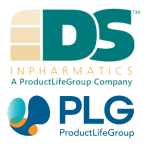There are three rules of engagement that are recommended for an End of Phase II meeting, whether this is done by telephone or face to face.

Image Credit: DS InPharmatics
Awareness and implementation of each rule can help ensure a successful negotiating strategy, and each rule is based on actual discussions with the regulatory agency. The fundamental position of this approach should be noted in each case.
Bring the discussion to the data presented
In this instance, data will include process capability, process robustness, acceptance criteria and the effectiveness of its analytical capabilities.
By the time Phase 2 clinical studies have been completed, a company will have invested a significant amount of time, expense and expertise into fully comprehending the science of how a drug product functions in humans.
The company is also likely to have thoroughly explored the clinical administration of the drug product in order to maximize its medical benefit while simultaneously minimizing its medical risks.
It is also important to ensure that similar resources are expended in understanding the science behind the consistent manufacture of the drug product, while retaining the desired quality.
Approaching manufacturing decisions scientifically is rapidly becoming the norm, with approaches based on enhanced knowledge of product performance across an expanded array of material attributes, improved processing options and process parameters.
Pharmaceutical development’s primary goal is the design of a quality product with its manufacturing process optimized to consistently deliver the product’s intended performance.
Knowledge and information obtained from pharmaceutical development studies and manufacturing experience can provide the scientific understanding to support the development of appropriate specifications, process design, and manufacturing controls.
Good drug development is a methodical, systematic approach to development, that is based on robust science and reliable risk management. This approach starts with predefined objectives, highlighting understanding of products, process and process control.
It is advisable for sponsors to invest in process characterization and process science, taking time to fully comprehend the manufacturing process and its outcome.
Seek clear understanding of the FDA position
Organizations will likely want to avoid CMC regulatory compliance delays, so it is advisable to obtain advice from the regulatory authority. While this seems logical, it may also pose some problems.
For example, the regulatory authority may expect more work to be done than is currently scheduled, and this could have an adverse effect on a corporate-determined marketing submission date. To avoid these situations, senior management must be prepared to involve the regulatory authority as a team player from the offset.
Ultimately, the regulatory authority controls the drug product’s fate, so it can be advantageous for a company to make sure that a reviewer fully understands the science behind the product and its manufacturing process.
It is advisable to liaise with regulatory authorities at the transition from Phase 2 to Phase 3, seeking advice and guidance on the CMC regulatory compliance strategy.
Both the European Medicines Agency (EMA) and the US Food and Drug Administration (FDA) understand the value of holding CMC-focused End-of-Phase 2 (EOP2) meetings with companies. In fact, they consider these meetings to be a “critical interaction” and “particularly important” for expedited programs.
Seek agreement that the data package is adequate to support the approach
The FDA will review the actual NDA or BLA submission before coming to a final determination. Deadlines will be set and announced publicly, and from that point, the CMC team is under intense pressure to meet the timeline for submission of the marketing application. There is often a rush to submit this document, and this rush will likely have negative consequences.
The FDA product approval system allows the agency to issue a ‘refusal to file’ letter, whereby it refuses to review a submission if it finds major gaps in CMC information.
For example, the submission could be lacking a complete description of the manufacturing methods, or there may be uncorrected deficiencies that were communicated to the applicant before the application was submitted.
If a rushed submission does pass this first assessment, this does not mean there will be no further issues moving forward, and the company may find that it still experiences extensive delays when looking to obtain market approval.
Submitting too early may meet a corporate target, but this can ultimately lead to substantially longer review times. One particular FDA CMC senior reviewer offered the following advice to companies on knowing when they are ready to file: “If you have to ask, ‘Can we submit the [fill in the blank] section of the application [fill in the length of time] after we submit the application?’, you are not ready!”
Overall, the sponsor’s primary milestone should not be the initial application filing date, but rather the more vital market approval date.
About DS InPharmatics 
DS InPharmatics (DSI) provides regulatory, technical, and project management consulting services to healthcare product companies that manufacture and/or market pharmaceuticals, biopharmaceuticals, and cellular and gene therapy products.
Since 2007 we have provided our clients with innovative strategies and exceptional quality work products intended to enhance product development, approval, and marketing presence. Whether advocating CMC strategy, directing CMC operations or developing CMC submission content that represent the best interests of emerging biotech, we focus on the critical CMC issues and build programs that enhance development.
In April 2021 we were thrilled to announce that DSI has just become part of ProductLife Group.
French-headquartered ProductLife Group (PLG) is well-known in the Life Sciences market. It has a track record of successfully managing global outsourcing programs and insourcing services for its international client base. The company is on a mission to help transform human health outcomes by optimizing regulatory affairs, safety & vigilance, and quality compliance for life sciences organizations worldwide.
The fit between our two organizations could not be more perfect. We will complement PLG's growing biotech services portfolio. US biotech sponsors recognize DSI as a leader in consulting for go-to-market strategies and RA pre-market consulting. At the same time, PLG has a strong reputation for managing end-to-end outsourcing of regulatory affairs and pharmacovigilance activities worldwide.
Our merger with PLG will harness our combined strengths, offering our clients on both sides of the Atlantic support with their developed drugs approvals and post-approvals compliance, plus advisory services on the best market strategies to deliver a rapid ROI on their development. Together we will offer our clients increased pharmacovigilance capabilities - including a QPPV; pharmacovigilance consulting; and a fully validated safety database - as well as complementary toxicology-related services; RIM/electronic document management services; and support for medical device regulatory requirements.
We see enormous potential in this new chapter for DSI and you, our clients. As a PLG company, we have the opportunity to become part of a global force in life sciences regulatory and compliance solutions and services, and we're incredibly excited to add our momentum to that effort.
Sponsored Content Policy: News-Medical.net publishes articles and related content that may be derived from sources where we have existing commercial relationships, provided such content adds value to the core editorial ethos of News-Medical.Net which is to educate and inform site visitors interested in medical research, science, medical devices and treatments.